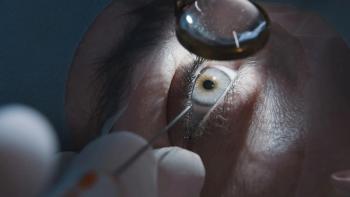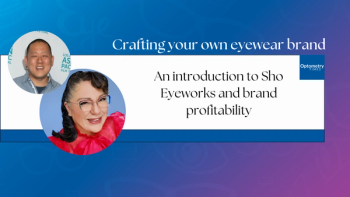
CVS and VSP: What the new deal means for you
CVS announced that it would work with VSP to begin providing vision care services at five of its stores in the Baltimore and Washington DC areas, raising concerns among independent eyecare providers in Maryland.
Baltimore-CVS announced that it would work with VSP to begin providing vision care services at five of its stores in the Baltimore and Washington, DC, areas, raising concerns among independent eyecare providers in Maryland.
VSP’s role in CVS vision care
VSP will provide the eyecare and eyewear services in the five CVS stores. VSP will subcontract with the doctors who work in CVS locations. CVS will carry a selection of Marchon and Altair eyewear frames, although not exclusively. It will also offer VSP Optics lens brands and use the VSPOne Lab network.
CVS has been a VSP client for its employees since 2002, and VSP says the partnership is currently limited to the five Maryland stores.
VSP’s decision to become a part of CVS’ new vision care program surprised many of its member doctors, especially those in Baltimore and Washington, DC.
Recent:
Immediate past-president of the Maryland Optometric Association (MOA) John Burns, OD, has been a VSP provider for more than 20 years. He says this move will be taking patients away from him-and all other independent ODs who are VSP providers in the area.
“Now, we’re competing with a commercial establishment, which was never VSP’s credo when they opened for business,” says Dr. Burns. “Honestly, I think a lot of us think that this is just about selling more Marchon and Altair frames at the expense of us-you know, the little guys.”
Alan Glazier, OD, FAAO, a VSP doctor who practices in Rockville, MD, says he is disappointed with the company’s decision to get caught up in what he calls “the race to the bottom.”
“They’ve gotten so far away from their original mission to serve the independent doctor,” he says, “to the point where now they’ve made an actual hostile move and are competing directly against us.”
American Optometric Association President Steve Loomis, OD, says that both CVS and VSP have the right to do whatever they’d like-but it’s clear they’re acting in their own best interests.
“The notion that either of those entities is acting in the doctors’ best interests is just not true,” says Dr. Loomis. “Insurance companies are going to act in their own best interests.”
VSP declined to respond to comment on member concerns.
“The MOA is watching the materialization of CVS ‘Minute Clinics’ closely,” says Andrew Morgenstern, OD, FAAO, president-elect of MOA, in a statement from MOA. “As its name suggests, these clinics are designed to provide care to the masses in a quick fashion. For some patients, this model will be convenient, safe, and effective, but we must also keep in mind that all patients require and deserve comprehensive eye care. In a culture where the pharmaceutical sales industry has a significant impact on private and corporatized medicine, ownership of all facets of the patient experience can significantly impact the quality of care. In this instance there is a potential monopolization of the patient experience. The MOA recognizes these ‘Minute Clinics’ can now bring the patient into the pharmacy directly for treatment, control employment of the doctors, maintain ownership of the optical material companies as well as the vision insurance company; all under the same billing system. This begs for independent oversight. The MOA’s primary concern is for our patients' safety, their proper care, and appropriate medical management, while maintaining a reasonable fee structure without any practitioner bias.”
Bryan Rogoff, OD, MBA, CPHM, an independent corporate and private practice consultant in Baltimore, says he understands why independent doctors are upset about the announcement. But from a business perspective, he sees why CVS is jumping into vision care-and why VSP is working with CVS. Both industries-pharmacies and eye care-are becoming increasingly consolidated, and companies are looking for the best strategy to stay in business, he says.
“The private optometrists have a legitimate claim that this is direct competition, but business is business,” he says.
Should you be worried?
It seems like there is a CVS on nearly every corner in the United States-should you be worried that these vision clinics could be coming to a drug store near you?
Dr. Rogoff says it’s too early to know how this program will pan out, but he doesn’t believe CVS will be a major competitor for the average independent OD, but rather for the Walmart, Costco, and other providers in the value sector of optical.
“If you live in a five-mile world, and you’ve got three CVS stores-and probably a Walmart, and a few LensCrafters-there’s a lot of competition, and I completely understand why people are reacting negatively,” he says.
Dr. Rogoff’s advice is to worry less about what other businesses are doing and focus more on providing the best service.
“You should always be on guard,” he says. “When you get nervous, you get to be reactionary. This is the strategy that VSP is taking-think about your own strategy moving forward, one that is not reactive, but proactive.”
Dr. Glazier agrees that CVS will not likely affect his practice.
Recent:
“I don’t compete on that end of the market,” he says. “I know my patients who have come to me for all of these years wouldn’t go to CVS to get their eye care.”
Dr. Burns, who has hired a practice management company and now consults for it, agrees with Drs. Rogoff and Glazier that knowing your own market and making your practice the best it can be is always the best move.
However, Dr. Glazier says that CVS’ announcement makes him even more concerned about the future of the optometric profession.
“Putting optometry in drug stores is driving our profession the way of pharmacists,” he says. “I think we should do everything we can to resist that unless we want to become a profession that wants to work in a pharmacy environment. This move cheapens the profession.”
Dr. Rogoff says that CVS and other companies have been able to move into the vision care space because of a void. He points to the rapid growth of corporate optical in the late ‘90s when he says optometrists stopped focusing on refraction in favor of moving into the medical space.
“We took our eye off the ball as optometrists, so we left ourselves with a huge void, and someone filled it,” he says.
Details of CVS’ plan
Beginning over the next few weeks, the optical services will be available seven days a week at the select locations in Maryland. CVS will offer comprehensive eye exams by an optometrist three days a week by both walk-in and appointment. Patients will be able to get prescriptions for both glasses and contact lenses and will have access to more than 600 eyewear styles. CVS says the company will accept many different insurance plans.
“Optical service at CVS/pharmacy will combine convenience, affordability, access, style and expertise all in one location,” CVS Spokesperson Stephanie Cunha told Optometry Times. “By expanding our retail health offerings into vision services, we are providing customers with a convenient, single destination on their path to better health.”
Recent:
CVS has more than 7,800 stores with about 1,000 walk-in medical clinics around the country. Cunha says there is potential to expand its vision services into other markets in the future, although there are no details on its plans.
“We will use learnings from these locations to determine how we can continue to serve our customers and help them on their path to better health in innovative ways,” Cunha says.
Newsletter
Want more insights like this? Subscribe to Optometry Times and get clinical pearls and practice tips delivered straight to your inbox.













































